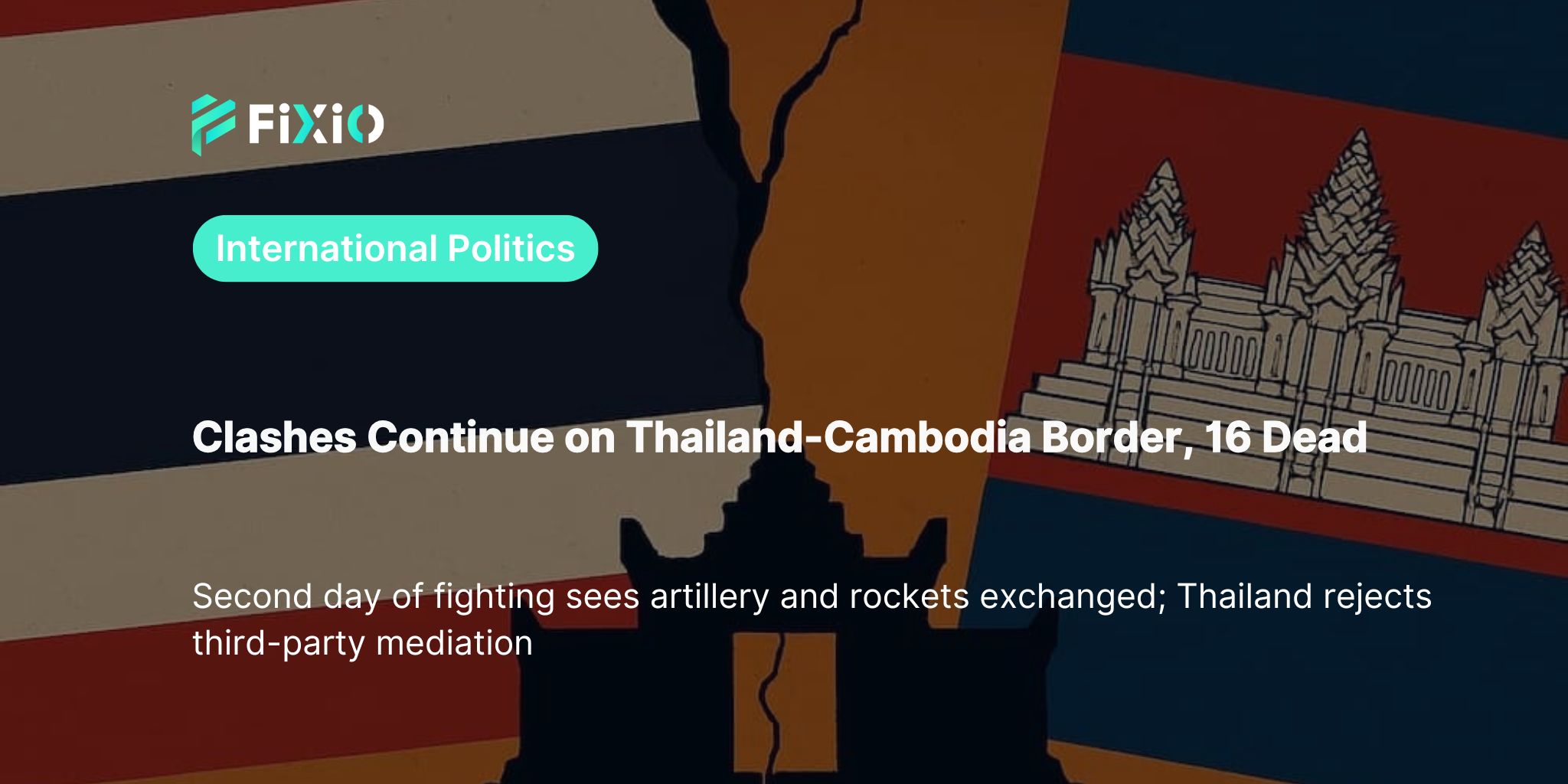
On July 25, 2025, a military conflict between Thailand and Cambodia entered its second day, with both sides engaging in heavy artillery fire along their disputed border region. At least 16 people have been confirmed dead, and the situation is rapidly deteriorating.
The fighting is concentrated in Thailand’s Surin Province and Ubon Ratchathani Province. According to the Thai military, Cambodian forces used BM-21 rocket launchers and other heavy Russian-made weapons. Thailand responded with appropriate countermeasures, asserting that it had no choice but to defend its territory.
According to Thailand’s Ministry of Public Health, 15 Thai nationals have been killed — 14 of whom were civilians. Another 46 people were injured, including 15 soldiers. More than 100,000 residents in the border region have been evacuated, with schools and temples converted into temporary shelters.
On the Cambodian side, officials in Oddar Meanchey Province reported one civilian death, five injuries, and the evacuation of more than 1,500 households. However, the central Cambodian government has yet to release official figures.
This conflict is rooted in long-standing territorial disputes dating back to the colonial period of French Indochina. Disputes over demarcation — particularly around the Preah Vihear Temple — have sparked repeated confrontations between the two nations.
Despite past efforts involving the International Court of Justice and peace processes, skirmishes and military provocations have continued along the border.
Thailand’s Foreign Ministry spokesperson confirmed on July 25 that the United States, China, and ASEAN Chair Malaysia had offered to mediate. However, Thailand rejected third-party involvement, insisting that the issue should be resolved bilaterally.
“We firmly believe that bilateral mechanisms offer the best solution,” the spokesperson said. “Cambodia must cease its provocations first. We do not require third-party mediation at this point, although our door remains open to dialogue.”
The Biden administration has called on Thailand to implement an immediate ceasefire, protect civilians, and pursue a peaceful resolution.
Malaysian Prime Minister Anwar Ibrahim stated on social media that both parties had shown willingness to consider peace talks. He reaffirmed Malaysia’s commitment to supporting the process under ASEAN’s spirit of unity and shared responsibility.
Prolonged conflict could escalate geopolitical risks in the region and impact both economic and security dynamics. Immediate cessation of hostilities and the establishment of sustainable peace mechanisms are imperative.
Greater engagement by ASEAN, potentially in cooperation with the United Nations and regional stakeholders, may be essential for stabilizing the Thailand–Cambodia border and preventing future escalations.
▶ Visit the FIXIO Blog for ongoing analysis of geopolitical risks and market impacts
※This article is based on reports as of July 25, 2025, and includes the latest information on the military clash along the Thailand-Cambodia border. Details such as the number of casualties, evacuation status, and diplomatic responses may change. For updates and official announcements, please refer to relevant authorities and international media.
Superior trade execution & trading conditions with the NDD method.

The online FX industry provides a platform for investors worldwide to engage in the buying and selling.

Subscribe to our daily newsletter and get the best forex trading information and markets status updates
Trade within minutes!
Comment (0)